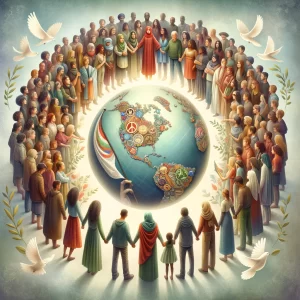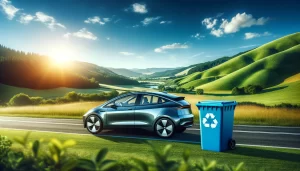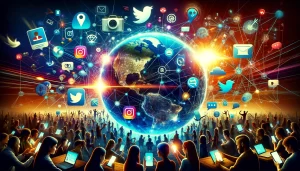In today’s rapidly changing world, the generational divide between Millennials and Baby Boomers often leads to misunderstandings that can impact relationships, workplaces, and societal dynamics. Here’s a closer look at 16 common misconceptions that exist between these two influential generations, shedding light on their differences and similarities, and fostering a deeper understanding that transcends age-related stereotypes.
1. Work Ethic: Laziness vs. Rigidity
A common misconception is that Millennials lack the strong work ethic characteristic of Baby Boomers, who are often perceived as rigid and overworked. However, Millennials tend to value work-life balance and flexibility more than previous generations, not less work. They are driven by purpose and fulfillment rather than the traditional 9-to-5 grind. Baby Boomers, on the other hand, were raised in an era where stability and long-term loyalty to a single employer were the norms, which is often mistaken for rigidity.
2. Technology Dependence: Digital Natives vs. Digital Immigrants
Millennials are often labeled as overly dependent on technology, whereas Baby Boomers are seen as technologically inept. In reality, Millennials, being digital natives, seamlessly integrate technology into their lives to enhance efficiency and connectivity. Baby Boomers, or digital immigrants, have also adapted remarkably well to new technologies, often embracing digital platforms for communication, entertainment, and learning.
3. Financial Attitudes: Entitlement vs. Conservatism
Millennials are frequently criticized for their perceived sense of entitlement, particularly regarding financial matters, while Baby Boomers are viewed as financially conservative and more economically secure. However, Millennials face unique economic challenges, such as higher student debt and housing prices, which shape their financial attitudes and behaviors. Baby Boomers, having benefited from a period of economic prosperity, tend to prioritize savings and investments, reflecting their experiences rather than an inherent conservatism.
4. Communication Styles: Informality vs. Formality
The preference for informal communication among Millennials, often through digital platforms, is sometimes mistaken for a lack of professionalism, contrasting with Baby Boomers’ more formal communication style. Millennials value authenticity and speed in communication, seeing formality as less important than content and efficiency. Baby Boomers, accustomed to traditional hierarchies and formalities, often interpret this casual style as a lack of respect, overlooking the effectiveness of direct and authentic communication.
5. Career Progression: Job Hopping vs. Lifelong Employment
Millennials are often perceived as job hoppers, lacking loyalty to their employers, in stark contrast to Baby Boomers, who are associated with the idea of lifelong employment with a single company. This difference is more reflective of changing economic conditions and job markets than a generational shift in values. Millennials seek career growth, development opportunities, and meaningful work, leading them to change jobs more frequently in pursuit of these goals.
6. Political and Social Views: Idealism vs. Pragmatism
Millennials are sometimes viewed as overly idealistic or radical in their political and social views, whereas Baby Boomers are seen as pragmatic and moderate. In reality, both generations have diverse views shaped by their unique societal contexts. Millennials’ idealism is often driven by a desire for social justice and environmental sustainability, while Baby Boomers’ pragmatism is informed by their life experiences and the historical events that shaped their formative years.
7. Learning Preferences: E-Learning vs. Traditional Classrooms
The misconception that Millennials can only learn through digital means, while Baby Boomers prefer traditional classroom settings, overlooks the flexibility and adaptability of both generations. Millennials value the convenience and accessibility of e-learning but also appreciate the benefits of face-to-face interactions. Baby Boomers, while initially educated in traditional settings, have shown significant adaptability by engaging with online courses and digital learning tools.
8. Environmental Concerns: Apathy vs. Ignorance
Millennials are sometimes accused of apathy toward environmental issues, while Baby Boomers are thought to be ignorant of modern ecological concerns. However, Millennials have been at the forefront of many environmental movements, driven by a deep concern for the planet’s future. Baby Boomers, having witnessed the rise of the ecological movement in the 1960s and 1970s, often possess a strong awareness of environmental issues, though their approaches to addressing these concerns may differ.
9. Housing Preferences: Transience vs. Homeownership
There’s a common belief that Millennials prefer transient living situations and shy away from homeownership, unlike Baby Boomers, who are seen as the homeownership generation. However, Millennials often face economic barriers to homeownership, such as high real estate prices and student debt, rather than a lack of desire to own homes. Baby Boomers, who benefited from more favorable housing markets in their youth, may perceive this as a lack of commitment, overlooking the economic realities facing younger generations.
10. Attitudes Toward Authority: Rebellion vs. Respect
Millennials are often perceived as challenging authority and traditional structures more than Baby Boomers, who are seen as respecting and upholding these systems. This view misconstrues Millennials’ desire for transparency, fairness, and a more horizontal organizational structure as rebellion, while it overlooks the fact that Baby Boomers were also once at the forefront of significant social and political changes that challenged the status quo.
11. Views on Education: Formal Degrees vs. Self-Learning
The value placed on formal education is another area of misunderstanding. Millennials are often seen as devaluing traditional educational paths in favor of self-taught skills and informal learning experiences. In contrast, Baby Boomers are perceived to prioritize formal education and degrees. In reality, Millennials recognize the importance of formal education but also value diverse learning experiences, including online courses and professional development opportunities, adapting to a rapidly changing job market.
12. Lifestyle Choices: Minimalism vs. Materialism
Millennials are sometimes labeled as minimalists who reject materialism, in contrast to Baby Boomers, who are seen as embracing material wealth and consumption. While many Millennials are drawn to minimalism for economic reasons and a desire for a simpler lifestyle, this doesn’t mean they reject material possessions outright. Baby Boomers, having grown up in a post-war era of prosperity, often value the security and comfort that material possessions provide, which is sometimes mistaken for materialism.
13. Relationship to Social Media: Overuse vs. Disconnection
The assumption that Millennials are addicted to social media and Baby Boomers are disconnected from it oversimplifies their relationship with digital platforms. Millennials, as digital natives, use social media as a tool for communication, networking, and activism. However, they are also aware of its downsides. Baby Boomers, while not growing up with social media, have increasingly adopted these platforms to stay connected with friends and family, challenging the notion that they are disconnected from digital life.
14. Attitudes Toward Health and Wellness: Obsession vs. Neglect
Millennials are often seen as obsessed with health and wellness trends, in stark contrast to Baby Boomers, who are perceived as neglecting their health. In truth, Millennials are more vocal about mental health and holistic wellness, integrating it into their lifestyle choices. Baby Boomers, on the other hand, have a strong track record of valuing physical health and fitness, evidenced by the fitness and jogging booms during their younger years.
15. Entertainment Preferences: Streaming vs. Traditional Media
There’s a belief that Millennials only consume entertainment through streaming services and have abandoned traditional media formats, unlike Baby Boomers, who are thought to prefer cable TV and print media. While streaming services are popular among Millennials for their convenience and variety, many also enjoy traditional media forms. Baby Boomers have also adapted to new media technologies, with many embracing streaming services alongside conventional media outlets.
16. Perspectives on Personal Development: Constant Self-Improvement vs. Settling
Millennials are often characterized by a relentless pursuit of personal development and self-improvement, while Baby Boomers are perceived as more likely to settle into established routines without seeking much change. This overlooks the fact that personal growth does not have an age limit, and many Baby Boomers continue to pursue new interests, careers, and hobbies well into later life, demonstrating a lifelong commitment to personal development that rivals that of younger generations.
Why Unraveling the Misunderstandings Between Millennials and Baby Boomers Is Vital
Understanding these misunderstandings between Millennials and Baby Boomers is crucial for bridging the generational divide. By recognizing the unique challenges and perspectives of each generation, we can foster more inclusive and productive conversations, workplaces, and communities. This not only enhances mutual respect but also leverages the diverse strengths and insights that each generation brings to the table, leading to more innovative and effective solutions to the complex issues facing society today.
Catherine is a tech-savvy writer who has focused on the personal finance space for more than eight years. She has a Bachelor’s in Information Technology and enjoys showcasing how tech can simplify everyday personal finance tasks like budgeting, spending tracking, and planning for the future. Additionally, she’s explored the ins and outs of the world of side hustles and loves to share what she’s learned along the way. When she’s not working, you can find her relaxing at home in the Pacific Northwest with her two cats or enjoying a cup of coffee at her neighborhood cafe.


















